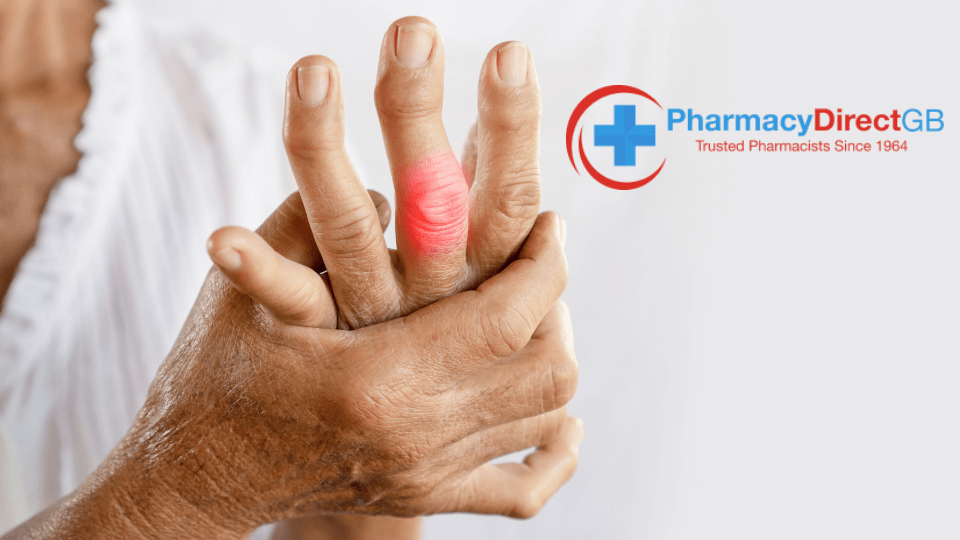
Fluconazole for Thrush
Looking to buy Fluconazole for Thrush? Order yours today through our online doctor. Start Consultation  Thrush, also known as oral candidiasis, is a common fungal infection that affects the mouth and throat. It is caused by the overgrowth of a fungus called Candida albicans. While generally harmless in small amounts, an overgrowth of this fungus can lead to uncomfortable symptoms and complications. In this comprehensive guide, we will delve into the causes, symptoms, and risk factors of thrush, as well as explore the role of Fluconazole in its treatment.
Thrush, also known as oral candidiasis, is a common fungal infection that affects the mouth and throat. It is caused by the overgrowth of a fungus called Candida albicans. While generally harmless in small amounts, an overgrowth of this fungus can lead to uncomfortable symptoms and complications. In this comprehensive guide, we will delve into the causes, symptoms, and risk factors of thrush, as well as explore the role of Fluconazole in its treatment.
What is Thrush?
Thrush is a type of yeast infection caused by Candida albicans, a naturally occurring fungus found in the mouth, throat, and digestive tract of most people. It typically manifests as creamy white lesions on the tongue, inner cheeks, gums, tonsils, or the back of the throat. These lesions may resemble cottage cheese and can be painful and irritating, particularly when eating or swallowing. Vaginal Thrush can be a white discharge (like cottage cheese), which does not usually smell.
The Causes of Thrush in the Mouth
- Weakened Immune System: A weakened immune system, often due to illnesses like HIV/AIDS or cancer, can make an individual more susceptible to thrush.
- Antibiotic Use: Antibiotics can disrupt the balance of natural microorganisms in the mouth, creating an environment conducive to the overgrowth of Candida albicans.
- Medications:Certain medications, such as corticosteroids or immunosuppressants, can increase the risk of developing thrush.
- Poor Oral Hygiene:Inadequate oral hygiene can lead to an accumulation of plaque and bacteria in the mouth, promoting the growth of Candida.
- Diabetes:Uncontrolled diabetes can create a favourable environment for the proliferation of Candida.
The Causes of Vaginal Thrush
Vaginal thrush, also known as vaginal yeast infection or vaginal candidiasis, is caused by an overgrowth of the fungus Candida albicans in the vaginal area. While Candida albicans is naturally present in the vagina in small amounts, various factors can lead to its overgrowth, resulting in a yeast infection. The primary causes of vaginal thrush include:
- Imbalance in Vaginal Microflora: The vagina contains a delicate balance of microorganisms, including beneficial bacteria that help control the growth of Candida. When this balance is disrupted, it can lead to an overgrowth of yeast and result in a yeast infection.
- Antibiotic Use: Antibiotics are prescribed to treat bacterial infections but can also inadvertently kill off the beneficial bacteria in the vagina. This disruption can create an environment conducive to the growth of Candida.
- Hormonal Changes: Hormonal fluctuations during the menstrual cycle, pregnancy, menopause, or while taking hormonal contraceptives can alter the vaginal environment, making it more favourable for yeast overgrowth.
- Weakened Immune System: A weakened immune system, which can be caused by conditions like HIV/AIDS or immunosuppressive medications, increases the risk of developing vaginal thrush.
- Diabetes:Poorly controlled diabetes can lead to elevated blood sugar levels, creating an ideal environment for Candida growth.
- Uncontrolled High Blood Sugar Levels: Even in individuals without diabetes, consistently high blood sugar levels can promote yeast overgrowth.
- Tight or Non-Breathable Clothing:Wearing tight-fitting or non-breathable clothing, especially underwear made of synthetic materials, can create a warm and moist environment in the genital area, providing an ideal breeding ground for yeast.
- Douching:Vaginal douching disrupts the natural balance of the vagina, potentially leading to an overgrowth of yeast.
- Sexual Activity: While vaginal thrush is not classified as a sexually transmitted infection (STI), sexual activity can introduce or spread yeast, leading to an infection.
- Poor Hygiene: Inadequate or improper hygiene practices in the genital area can increase the risk of yeast infections.
- Weakened Immune System:A compromised immune system due to certain medical conditions or medications can make individuals more susceptible to yeast infections.
It's important to note that while these factors can increase the likelihood of developing vaginal thrush, many women may experience yeast infections without any obvious cause.
Symptoms of Mouth Thrush
- White, Creamy Lesions: The most common and apparent sign of thrush is the presence of white, raised lesions on the tongue, inner cheeks, or throat.
- Soreness and Discomfort: The affected areas may become red and sore, causing pain and discomfort, especially while eating or drinking.
- Difficulty Swallowing: Severe cases of thrush can make swallowing difficult and painful.
- Loss of Taste:The presence of thrush can lead to a temporary loss of taste sensation.
- Cracking at the Corners of the Mouth: Thrush can cause the corners of the mouth to crack and become painful.
Symptoms of Vaginal Thrush
- Vaginal Itching:Itching in and around the vagina is one of the most prevalent symptoms of thrush. The itching may range from mild to intense and can be persistent.
- Vaginal Discharge:Women with thrush often experience abnormal vaginal discharge. The discharge is usually white or creamy in colour and has a thick, cottage cheese-like consistency.
- Redness and Swelling:The vaginal area may appear red, swollen, and irritated due to the inflammation caused by the yeast infection.
- Burning Sensation: Some women with thrush report a burning sensation, especially during urination or sexual intercourse.
- Soreness and Pain:The vaginal tissues may become tender and sore, causing discomfort and pain.
- Vaginal Odor:In some cases, vaginal thrush can lead to a mild, yeasty odour in the vaginal area.
- Discomfort During Sexual Intercourse: Thrush can make sexual intercourse uncomfortable or painful due to the inflammation and sensitivity in the genital region.
Risk Factors for Thrush
- Age: Infants, older adults, and people with weakened immune systems are at a higher risk of developing thrush.
- Medical Conditions: Certain medical conditions, such as HIV/AIDS, diabetes, and cancer, increase the likelihood of thrush.
- Smoking: Tobacco use weakens the immune system and can contribute to the development of thrush.
- Dentures:Ill-fitting or unclean dentures can promote the growth of Candida and increase the risk of thrush in denture wearers.
Fluconazole For Thrush: How It Works and How It's Used
Fluconazole is an antifungal medication commonly used to treat thrush and other fungal infections. It belongs to a class of drugs known as azole antifungals. Here's how it works and its uses for thrush:
- Mechanism of Action: Fluconazole works by inhibiting the growth and reproduction of the Candida fungus. It does so by interfering with the synthesis of ergosterol, an essential component of fungal cell membranes, leading to the weakening and death of the fungus.
- Oral Thrush Treatment:Fluconazole is often prescribed for the treatment of oral thrush. The dosage and duration of treatment may vary depending on the severity of the infection and the patient's health condition.
- Esophageal Thrush Treatment:In severe cases of thrush that extend into the oesophagus, Fluconazole can be administered intravenously to ensure effective treatment.
- Prevention of Recurrent Thrush: Fluconazole may be prescribed as a prophylactic treatment to prevent recurrent episodes of thrush in individuals with compromised immune systems or those at high risk.
- Candida Infections in Other Areas: Aside from oral thrush, Fluconazole can also be used to treat other Candida infections, such as vaginal yeast infections and fungal skin infections.
Order Fluconazole for Thrush
Thrush is a common fungal infection caused by the overgrowth of Candida albicans. It can be uncomfortable and, in some cases, may lead to complications, particularly in individuals with weakened immune systems. Fluconazole is a widely used antifungal medication effective in treating thrush and other Candida infections. If you suspect you have thrush or are at risk, contact one of our pharmacists for an accurate diagnosis and to get Fluconazole. With proper care and treatment, thrush can be effectively managed. Start Consultation  This blog post was written on behalf of PharmacyDirectGB by Pharmacy Mentor. The content of this article is intended solely for informational purposes and should not be interpreted as medical advice. It’s important to consult with our pharmacists to understand the risks and rewards of any treatment before proceeding.
This blog post was written on behalf of PharmacyDirectGB by Pharmacy Mentor. The content of this article is intended solely for informational purposes and should not be interpreted as medical advice. It’s important to consult with our pharmacists to understand the risks and rewards of any treatment before proceeding.







